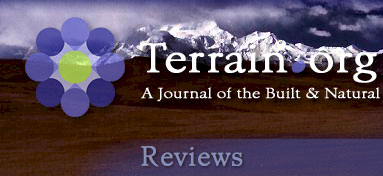
 |
|
|
Delivering the News Andrew C. Gottlieb reviews Story Problems: Poems, by Rob Carney
Carney is clever. Even in his titles, he’ll catch you off guard, making you at once think and smile. “Just Once I’d Like to Sneak Up on the Wind,” is a good example, a long poem in several parts that approaches the lyric essay with leaps across topics linked by emotional arcs: “—there must be something tucked in its pocket: / a memory I’ve somehow forgotten, // or the shape of a promise, the quiet heart / of smooth stones.” There are lines like this that show us the world is a beautiful place, but Carney is good at pairing his lyrical appreciation with a toolbox, too. The world is beautiful but it needs fixing, he shows us, and now. In the book’s first poem, a prose poem, “You Can’t Trade Africa for a Treadmill,” Carney tells us “but that’s what the humans are up to lately.” The poem tells of an elephant in a small pen in Alaska, and the zoo, in response to activist anger, has built a giant treadmill for the elephant, Maggie. He continues, “...if someone ever made me trade the Sky . . . for an oxygen tank, then I’d damn well better be scuba diving” (emphasis his). This isn’t the only place Carney positions himself as an animal voice and critic of human behavior. Along with elephants are whales, Kodiak bears, salmon, wolves, elk, foxes, coyotes, rhinos, sailfish, cats, deer, and penguins. And in the binoculars of the natural and animal world are the hypocrisies of politics and religion. The poem “Politics” is a sequence of haikus that are epigrammatic in nature, each sharp as a blade:
Another stanza reads:
A lesser writer would tend to gratuitousness, but Carney is deft with his humor and irony, and the turns in his poems are appropriate, balancing wry wit with seriousness, pointed insight with metaphor and abstraction. Even his lightest lines are smart, again foregrounding the animal before the human: “. . . I’d like to ask a barn owl where it lived / before there were barns.” It doesn’t take too much reading to see that Rob Carney is a man who loves the world. He loves animals, nature, and people, too—the miracle of it all from the faintest constellation to the closest insect. It’s that love that makes his frustration prominent. We’re lucky Carney has the patience to transform his thinking into poetry. His effort leads to a style something like a combination of Bob Hicok, E. E. Cummings, Kurt Vonnegut, and William Stafford. Another haiku:
It’s a naturalist’s sensitive combination of love, wit, philosophy, and indignation, coupled with juxtapositions that will thrill a reader:
Be ready to laugh, but at the same time be ready to have Carney pry off the shingles and show you what’s really going on in the house. When Carney takes shots at the language of war and economics, you’ll laugh and think, and you’ll be glad for the humor instead of the sledge hammer many activist writers employ. Carney’s government narrators show us the “poor” are really “financially un-robust,” and that “hunger” is really “food-insecure.” The penultimate section, New Myths for a New Century, features seven poems looking backward and forward, myths based in Washington State, Carney’s old stomping ground. In these “Old Songs about Washington,” we see Carney’s ideal: robust lands of forest and wildlife, where mountains are brothers and foxes and thunder fight over lightning. In another of Carney’s myth poems, “When Life Was Born,” we see an eagle give to the siblings, Life and Death, one eye each, one wing each, one heartbeat each:
I can’t help but think that if Rob Carney was not a poet, he’d be a good citizen at his local council meetings, angry, fighting for change. That can be useful, too, but as a reader I’m glad that he brings his fight and his intelligence to the couplet instead of the council. The page is where Carney wants to chisel his change, one reader at a time. In “As If We’re Out Delivering the News,” he tells of his son walking from tree to tree, talking, touching each tree, asking them to wake up. In this prose poem, Carney delivers what could be his mantra, imagining the trees actually coming awake and reciprocating, accompanying himself with his son:
|
|
||||||||||||||||||||||||||||||||||||||||||||||||||||||||||||||